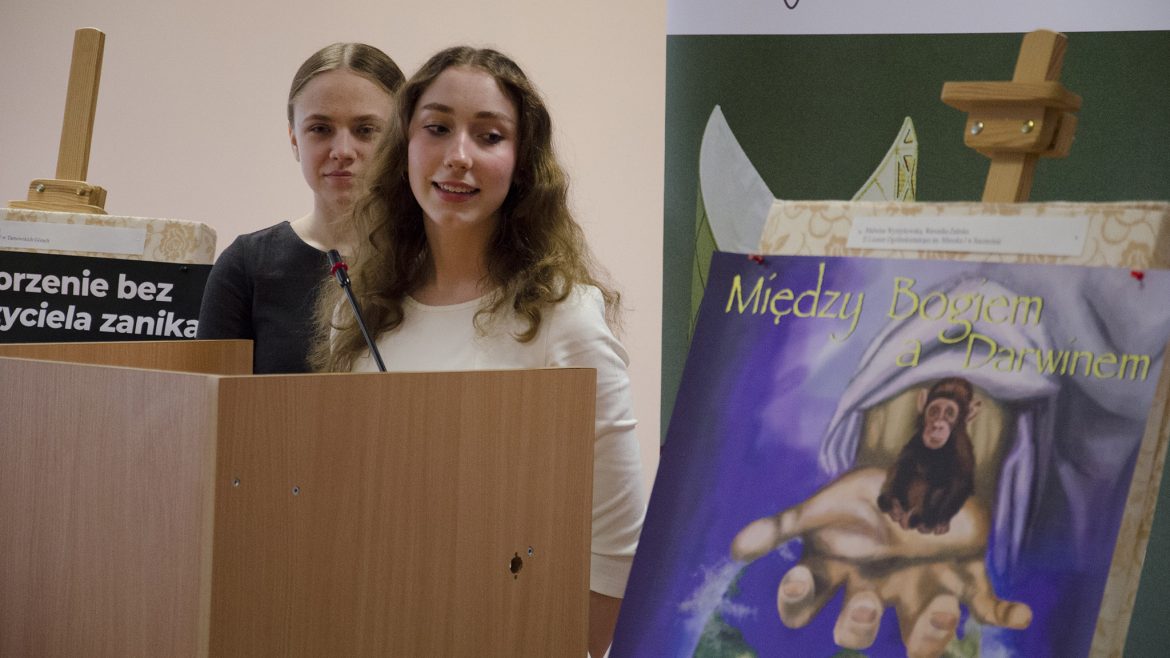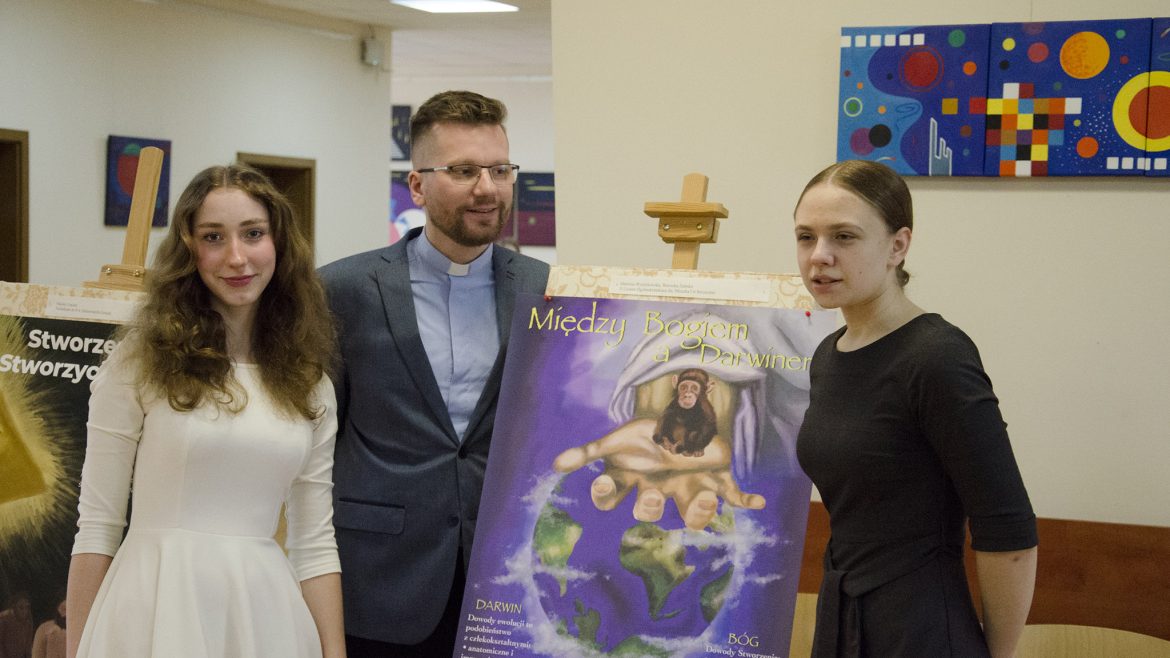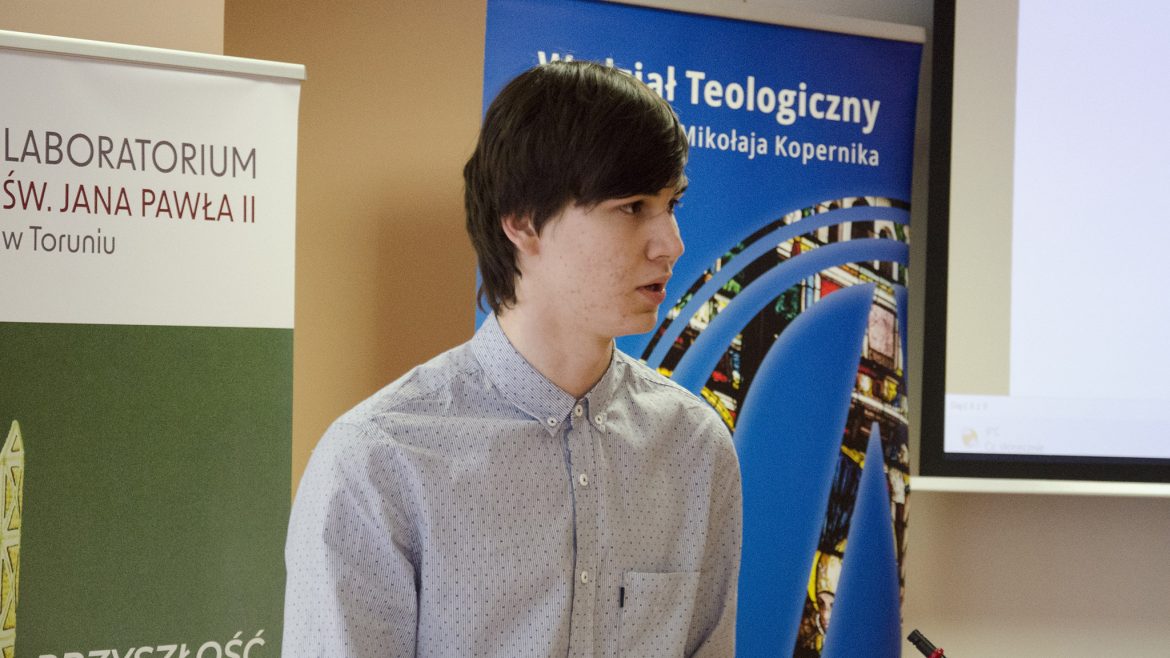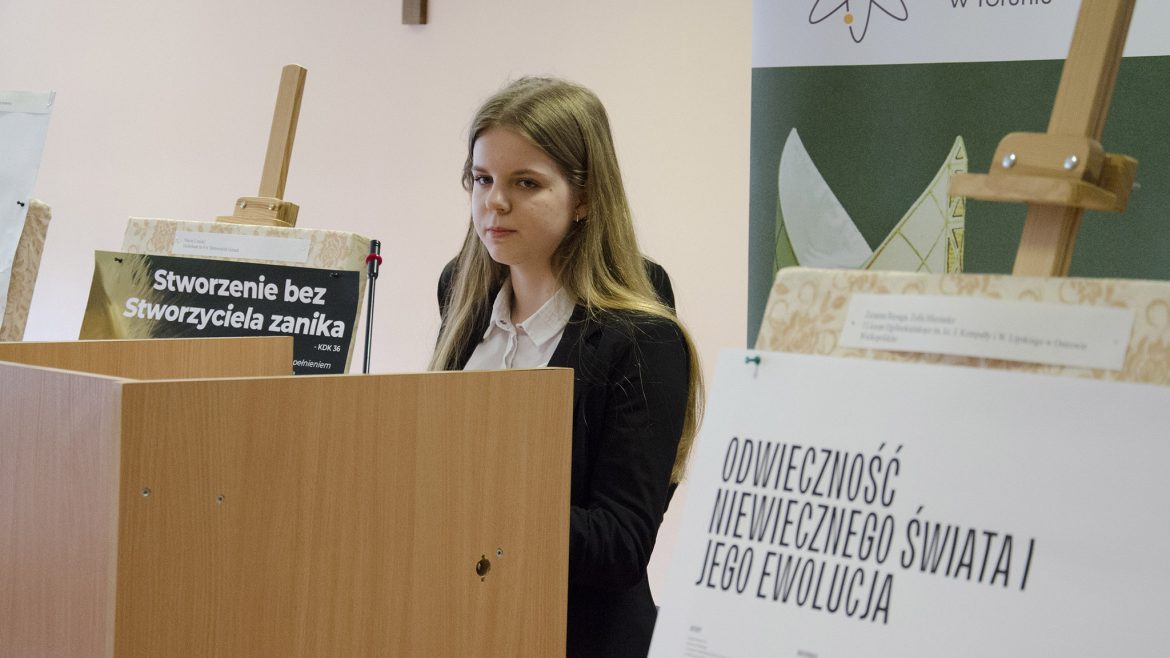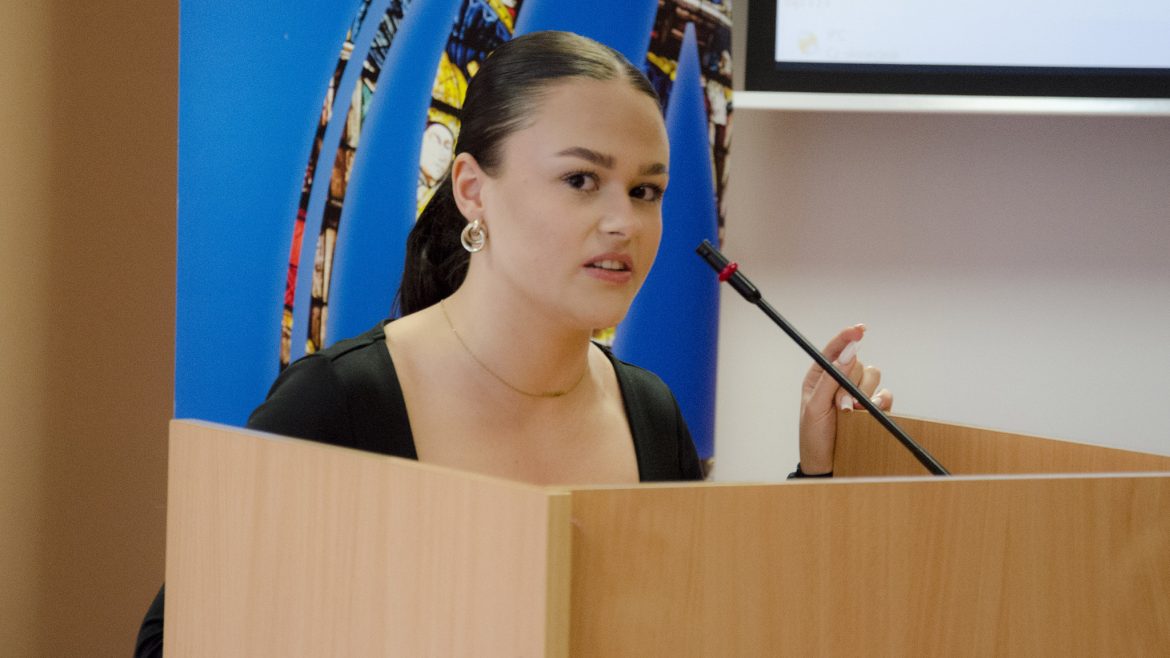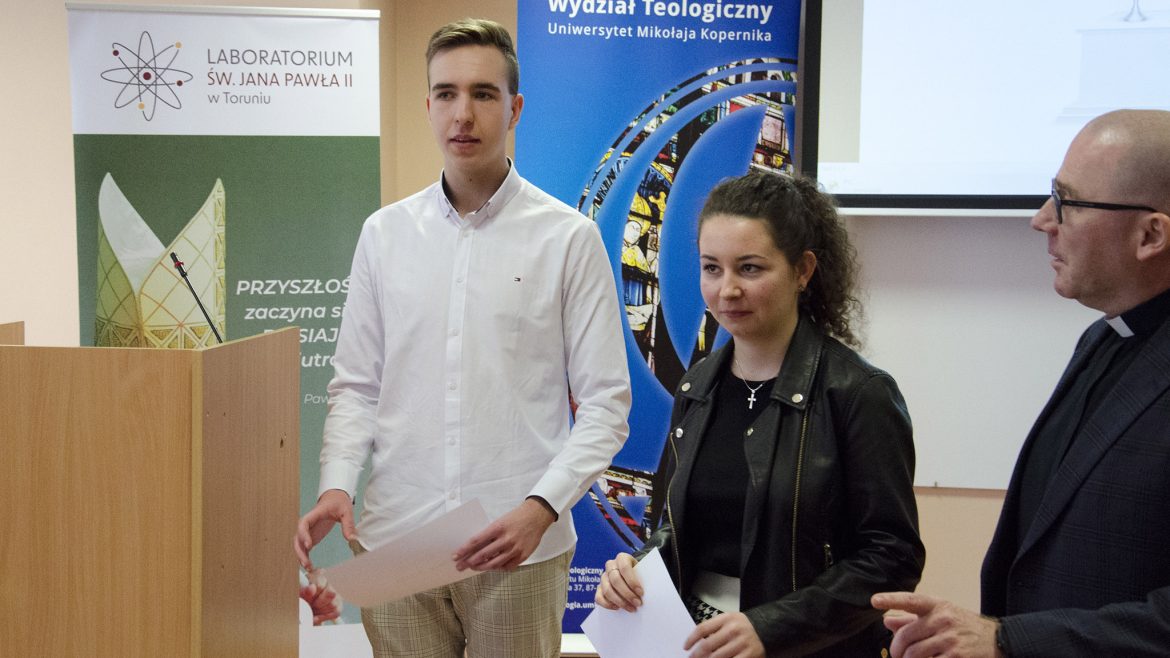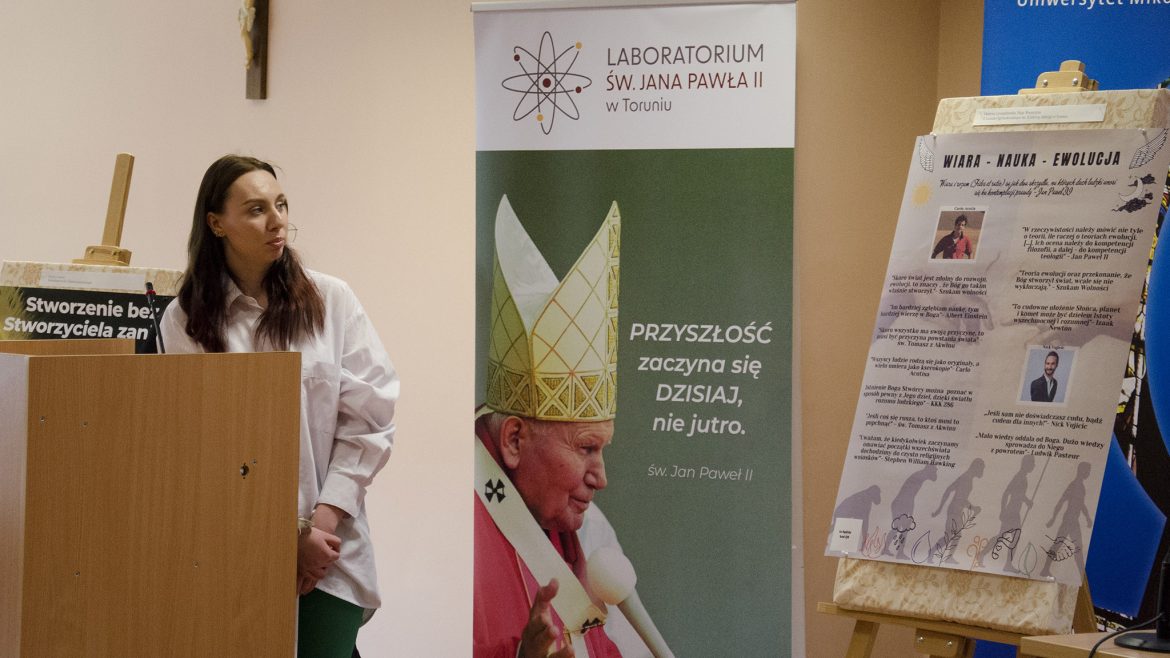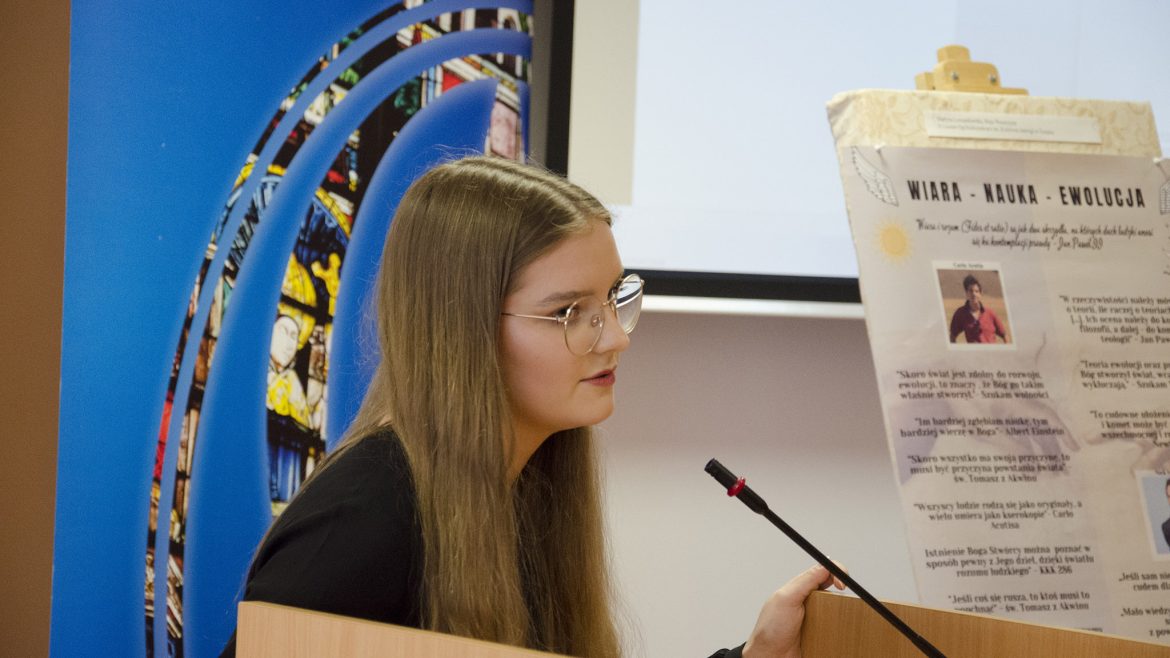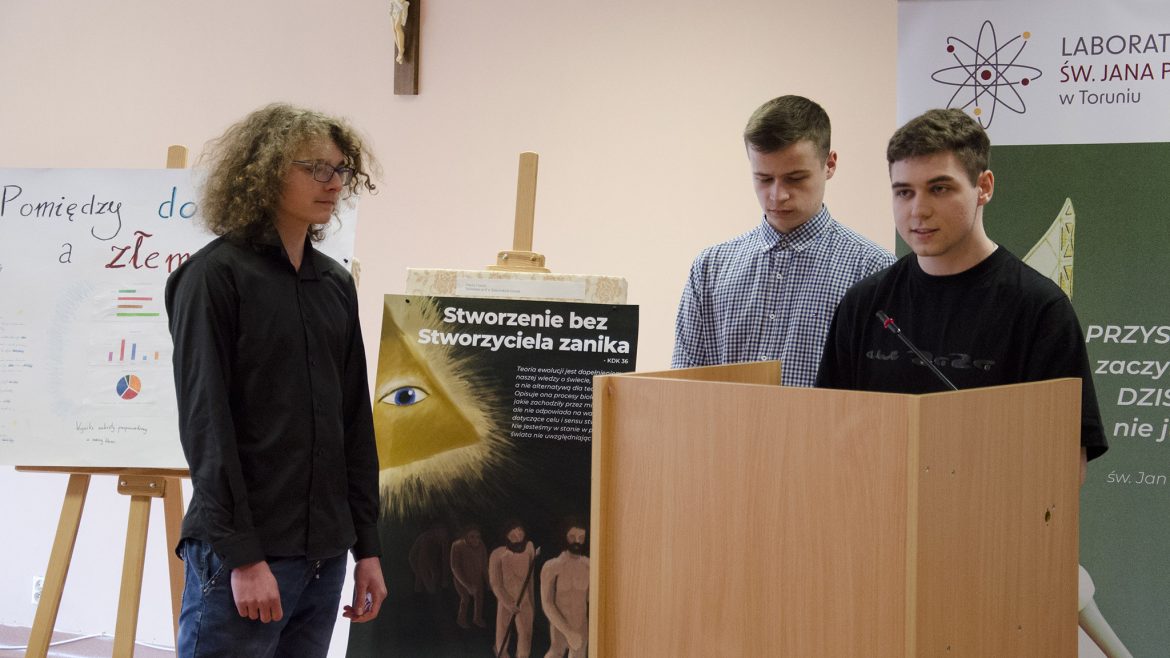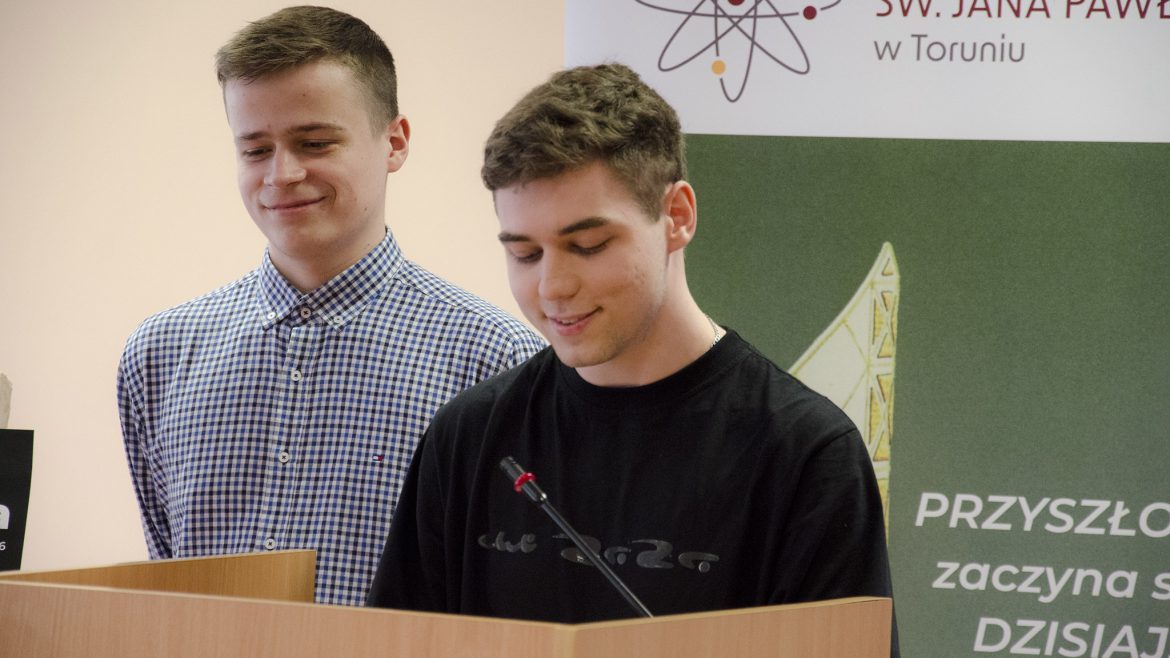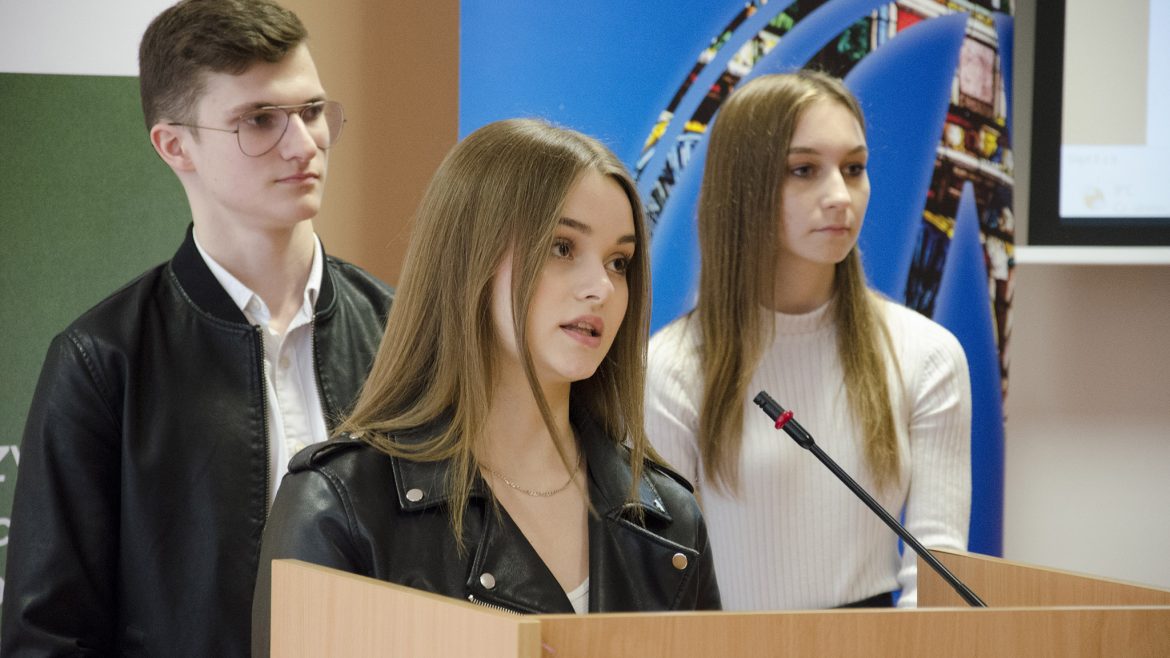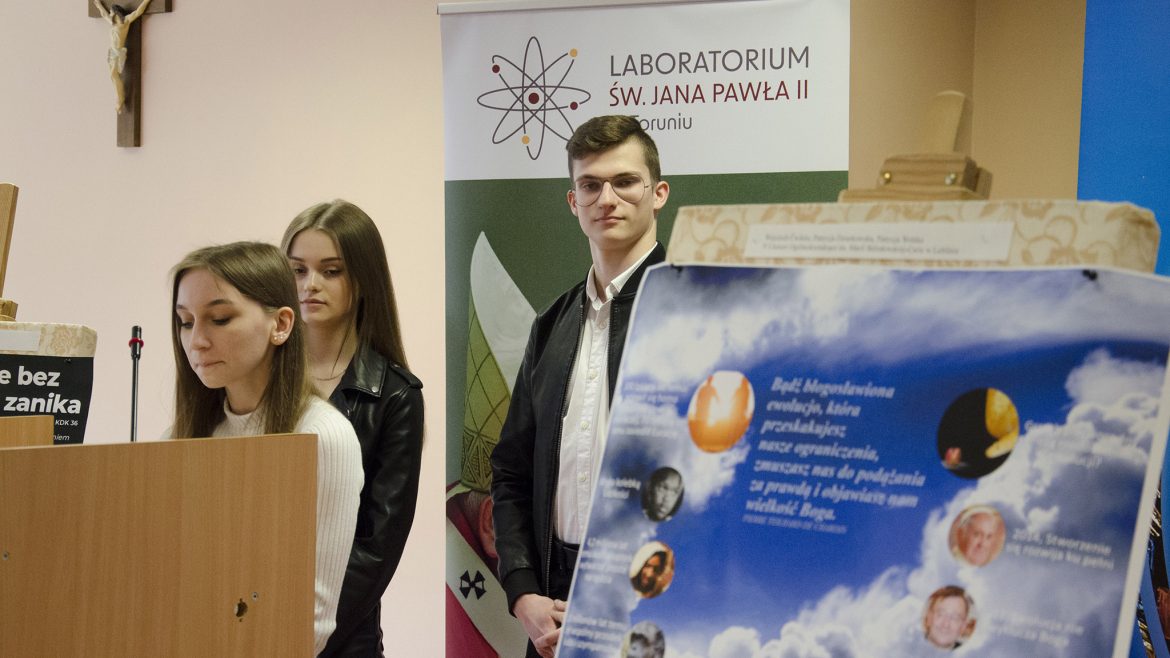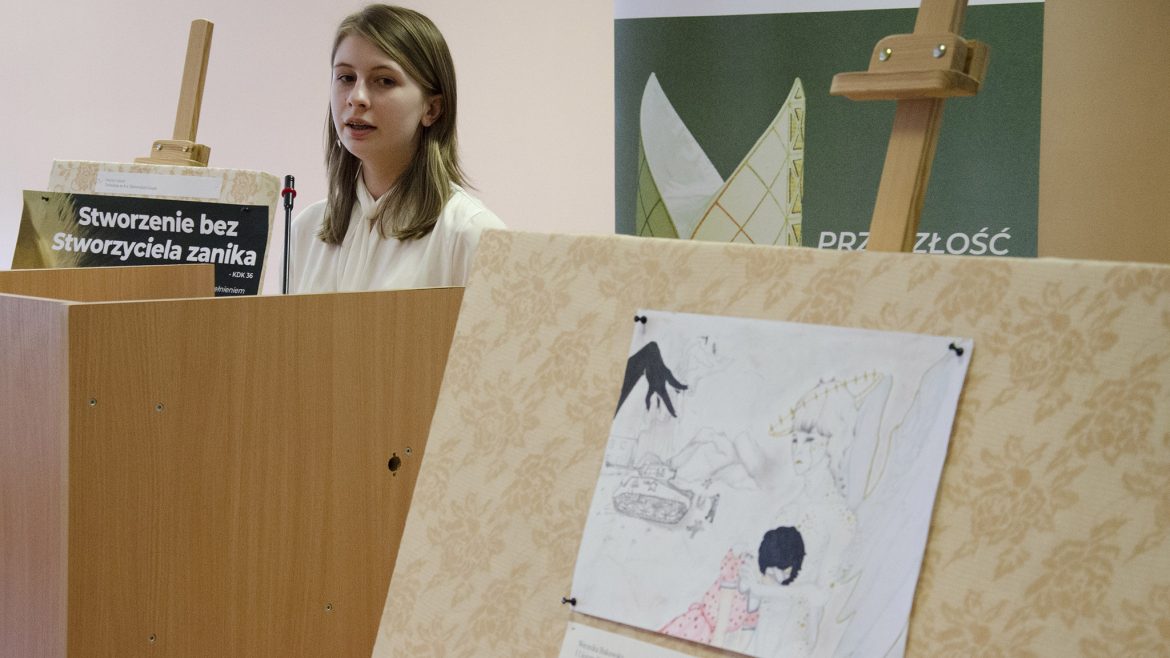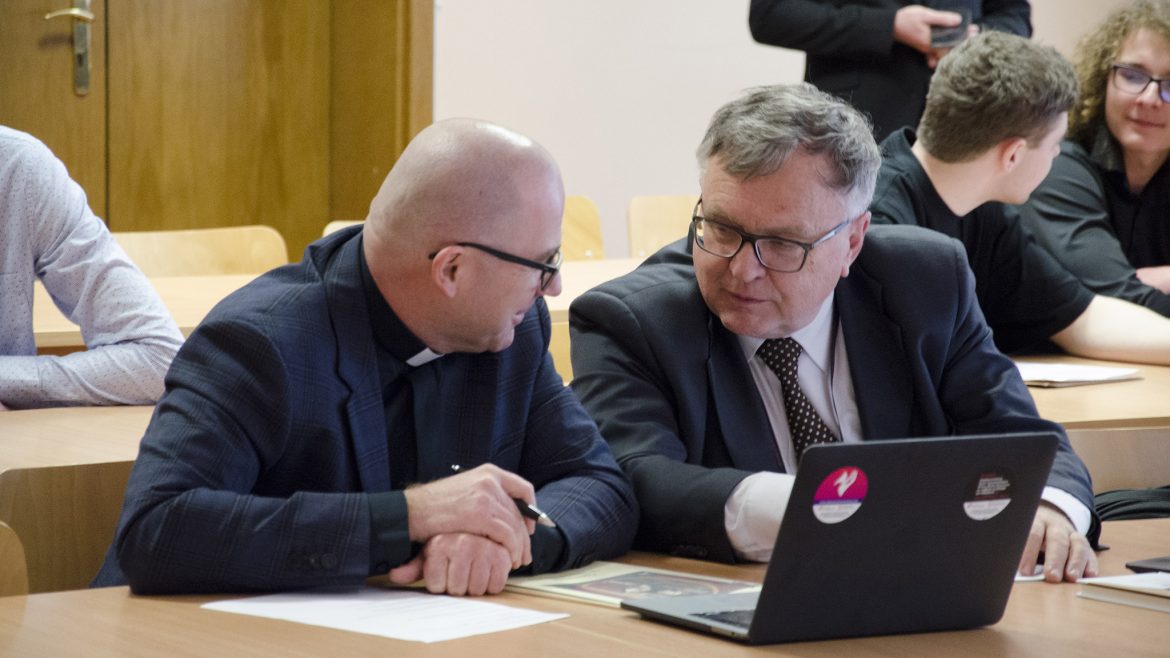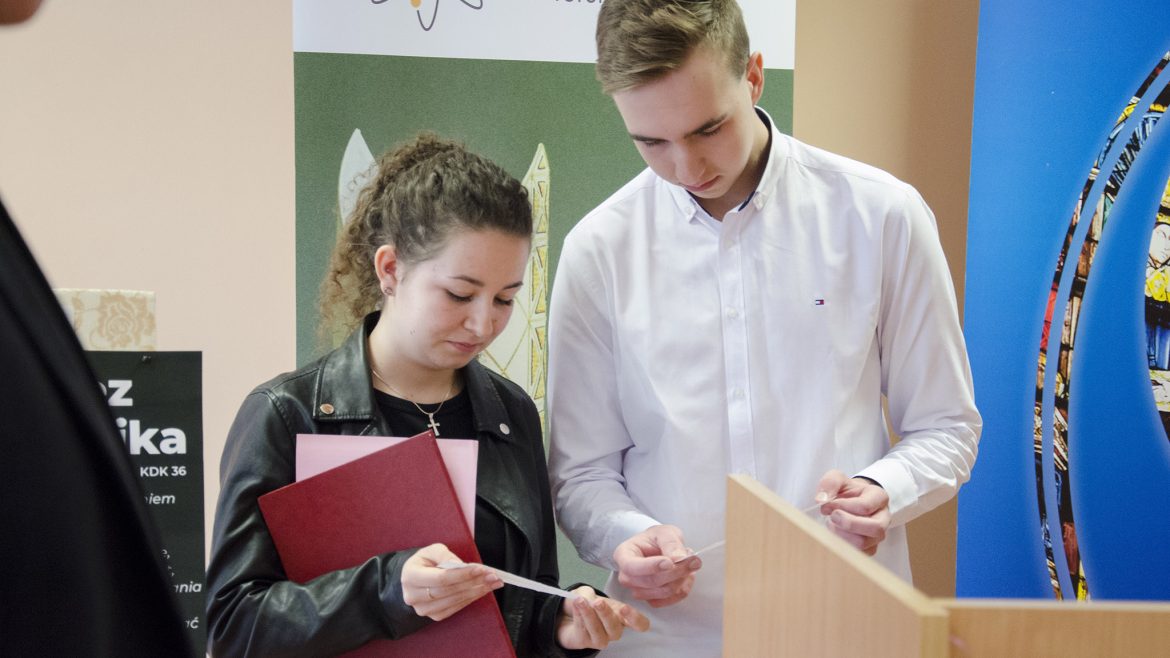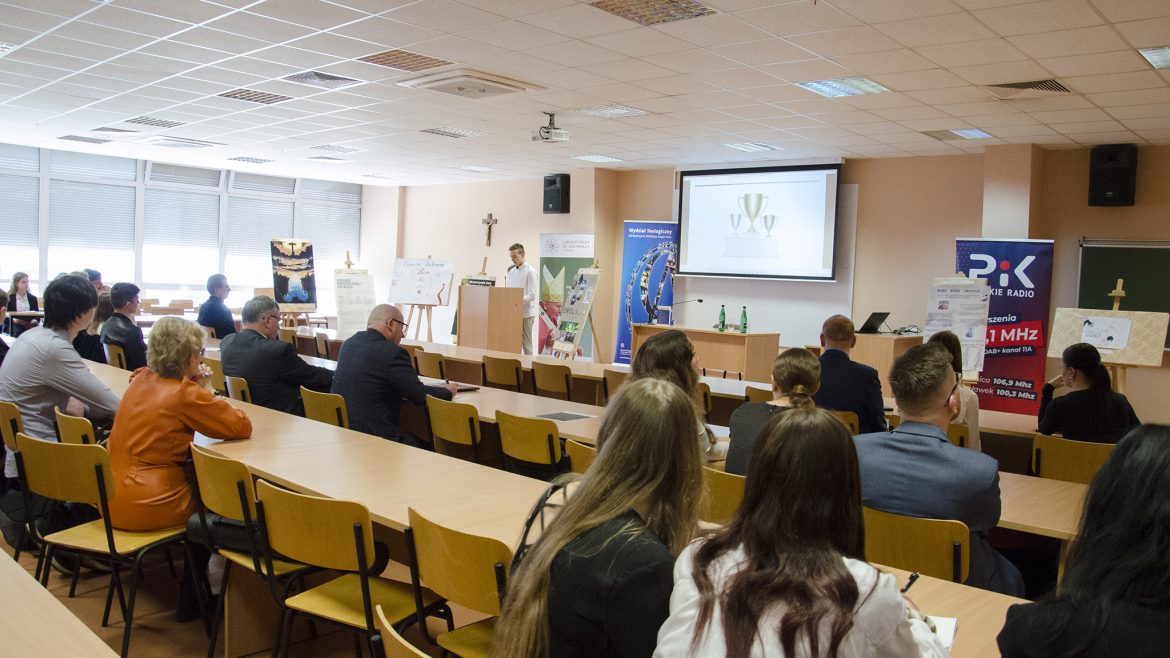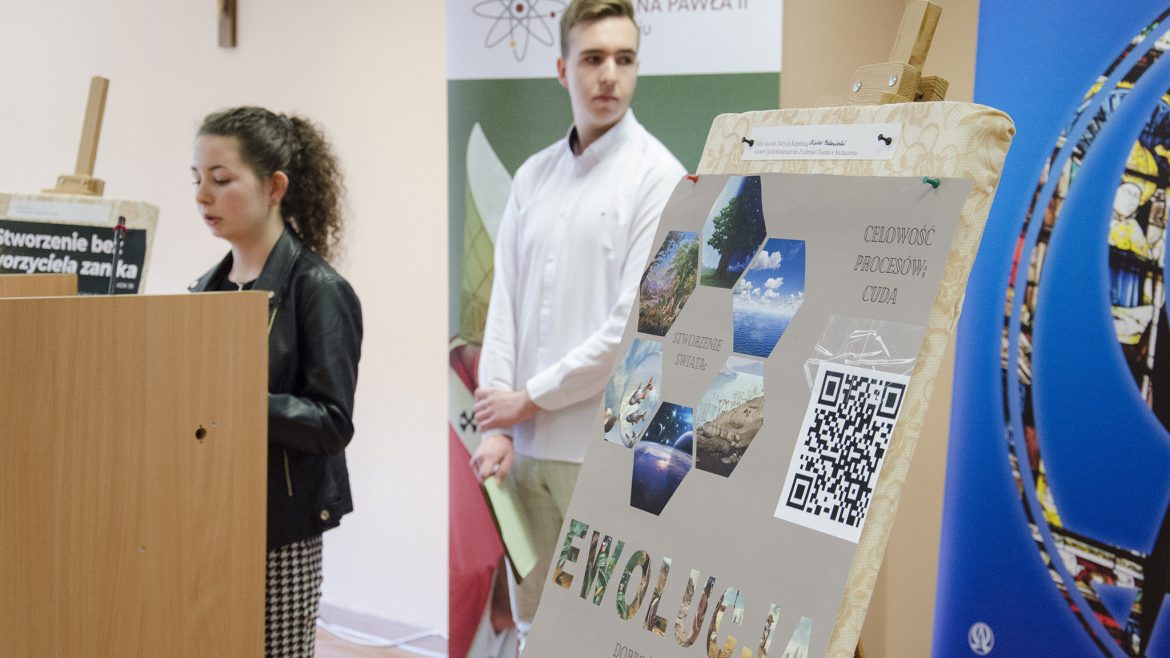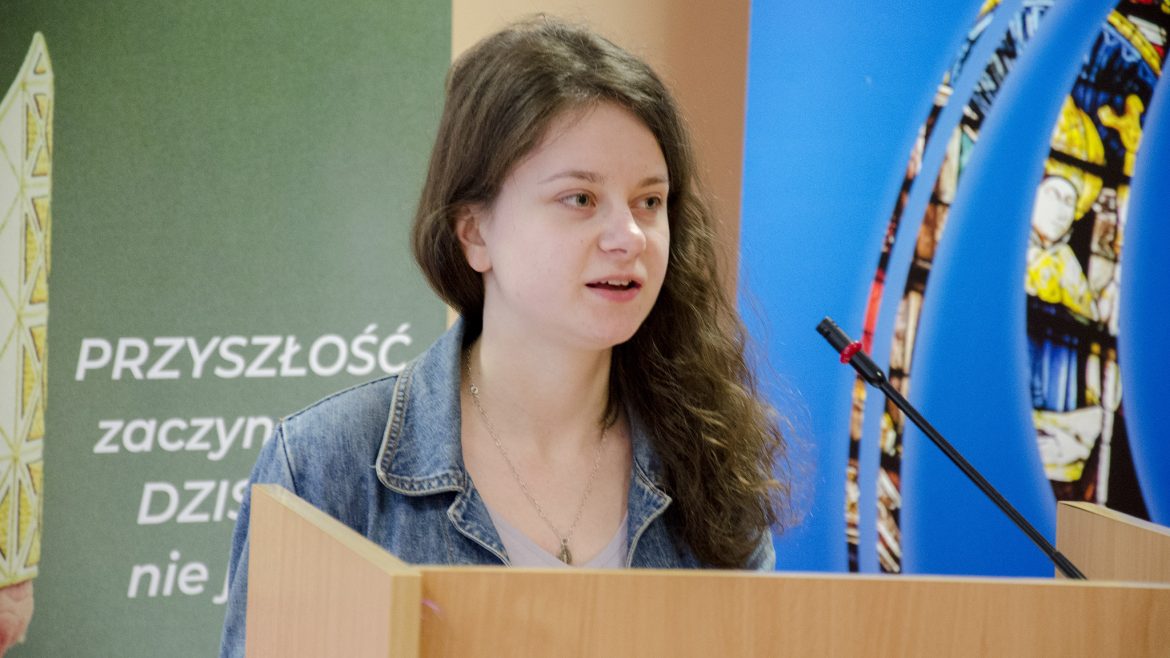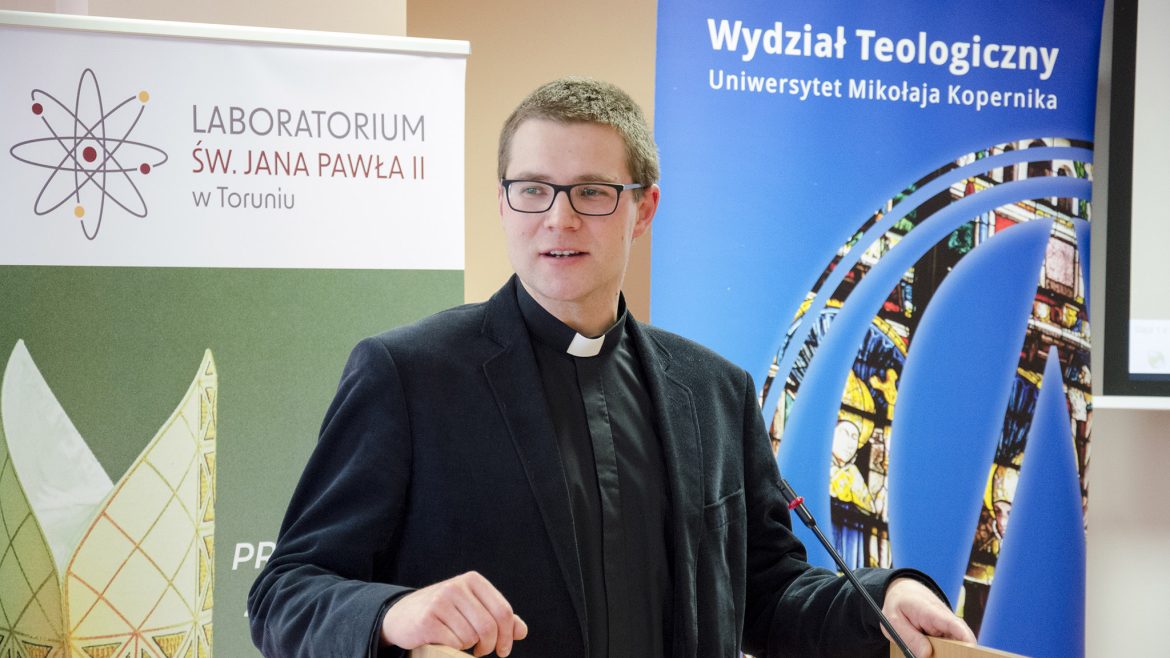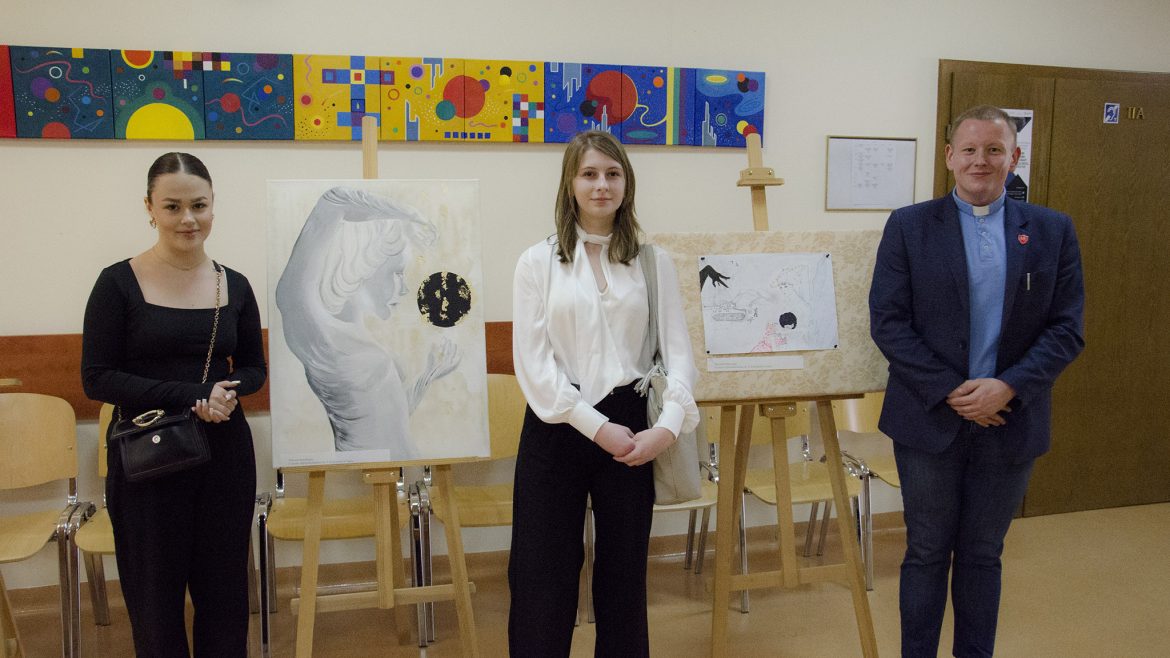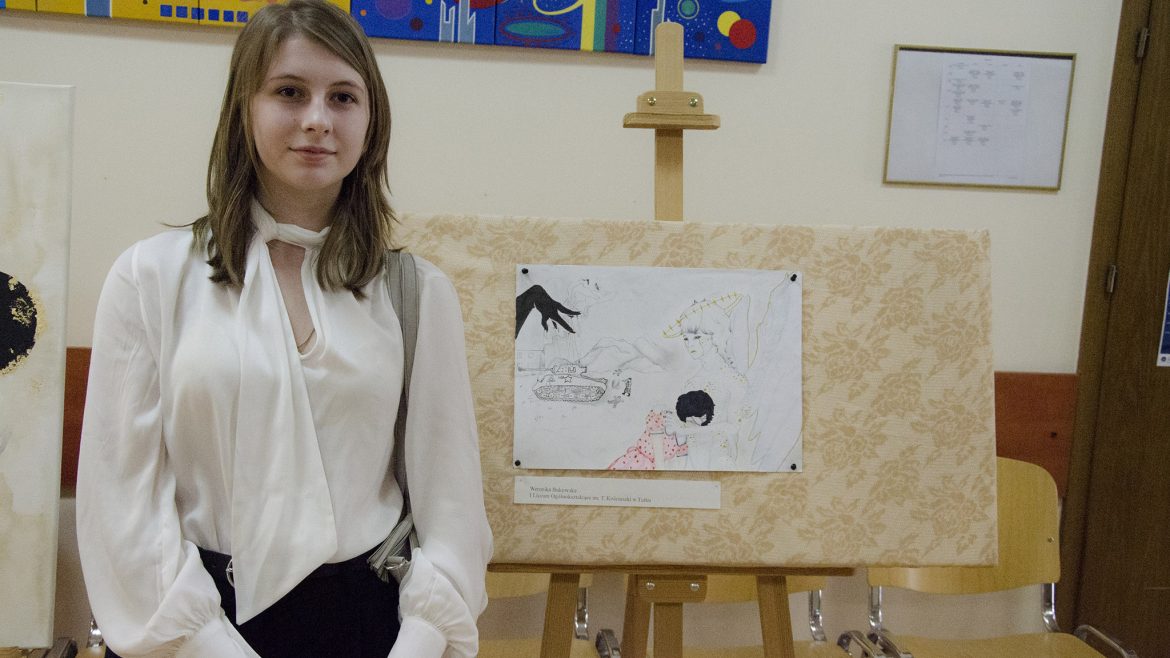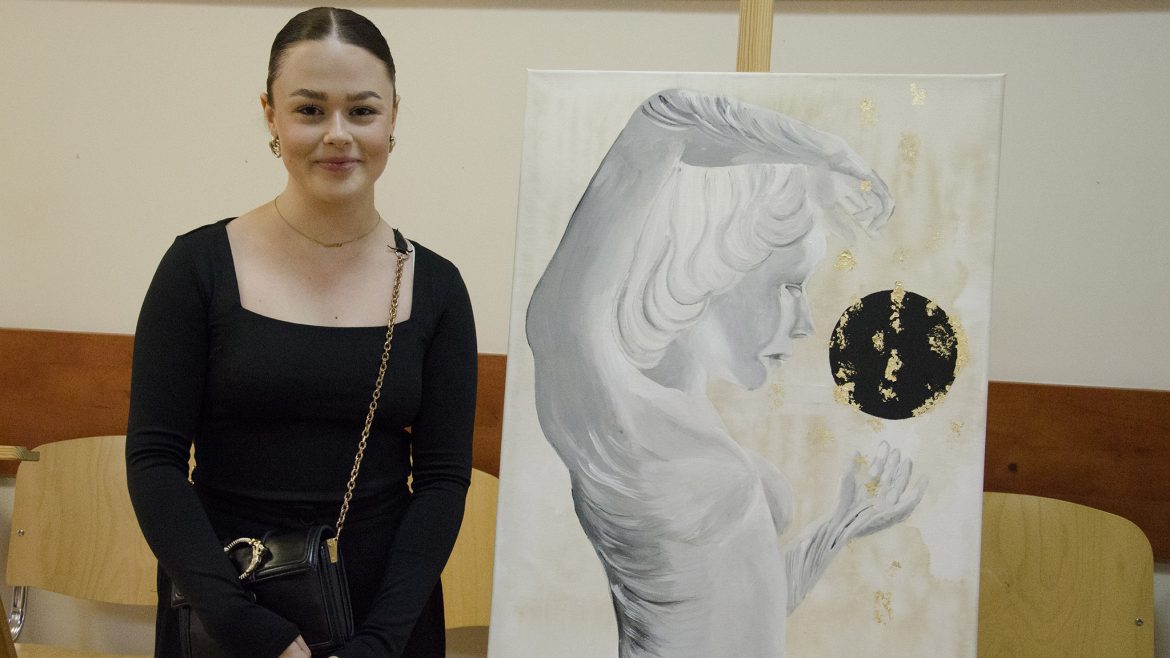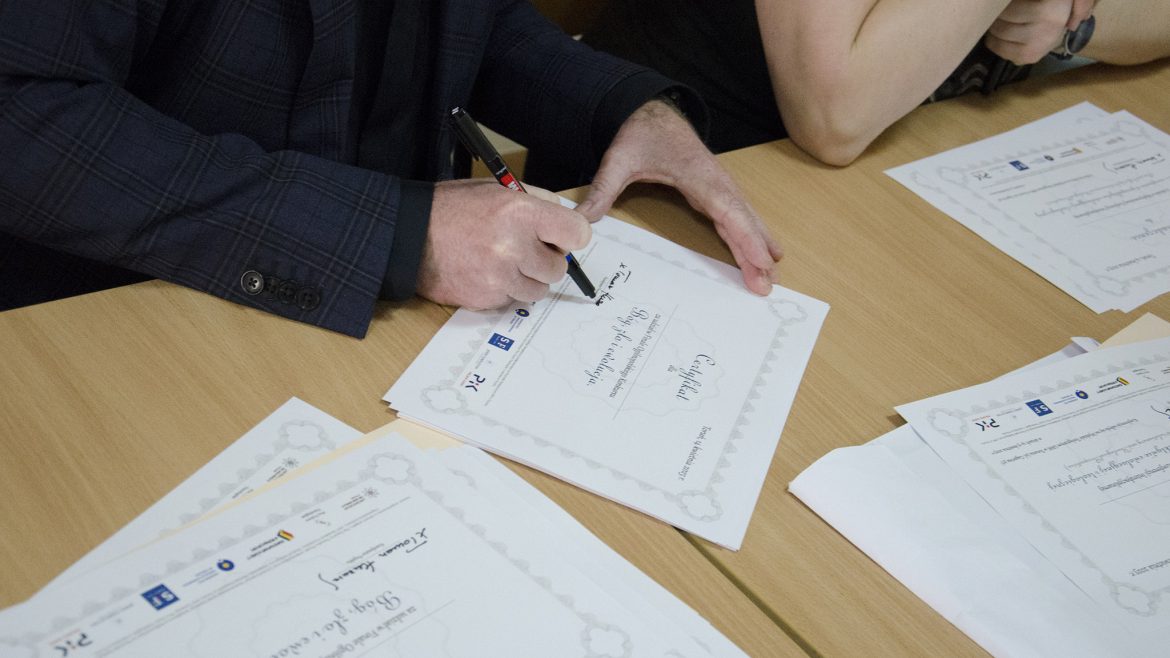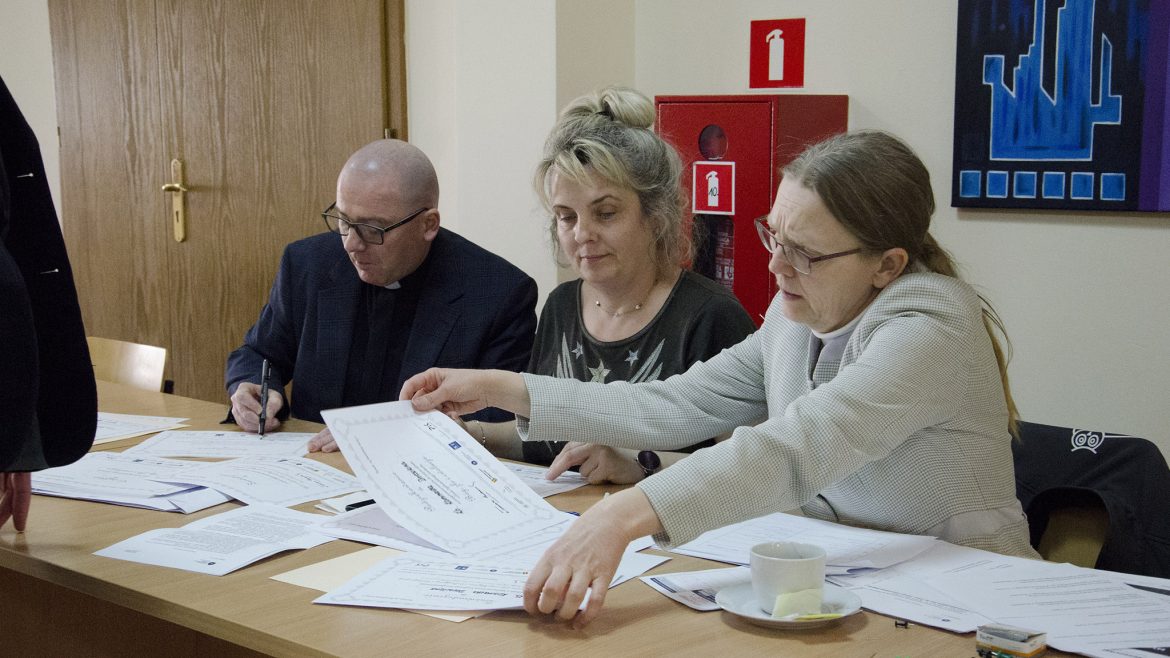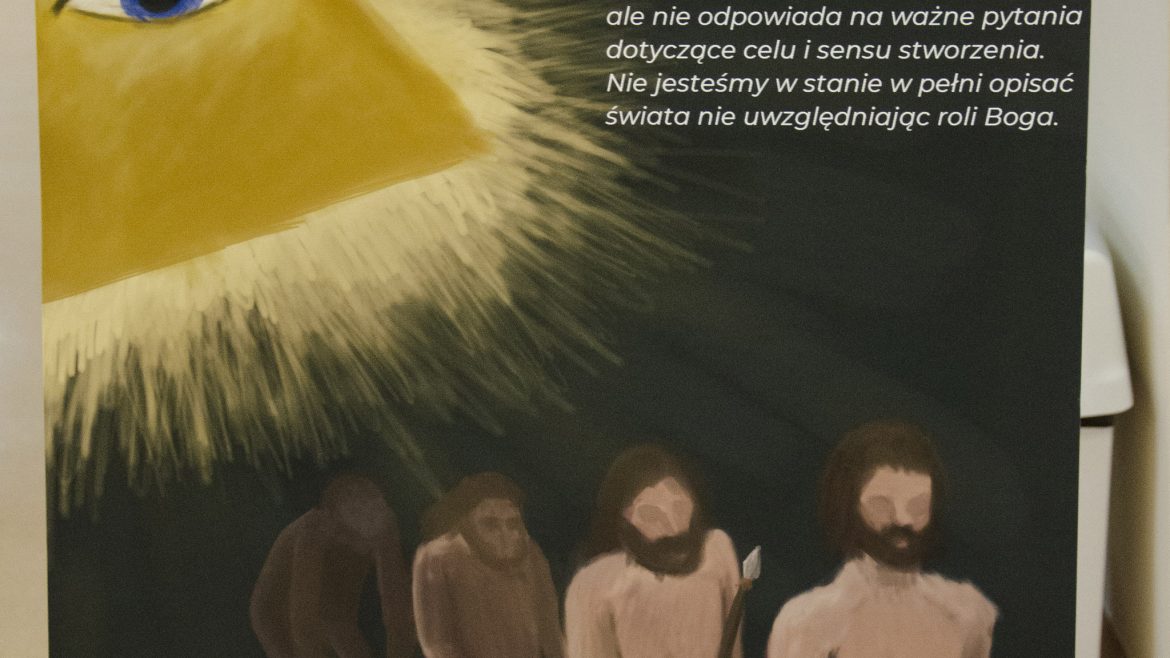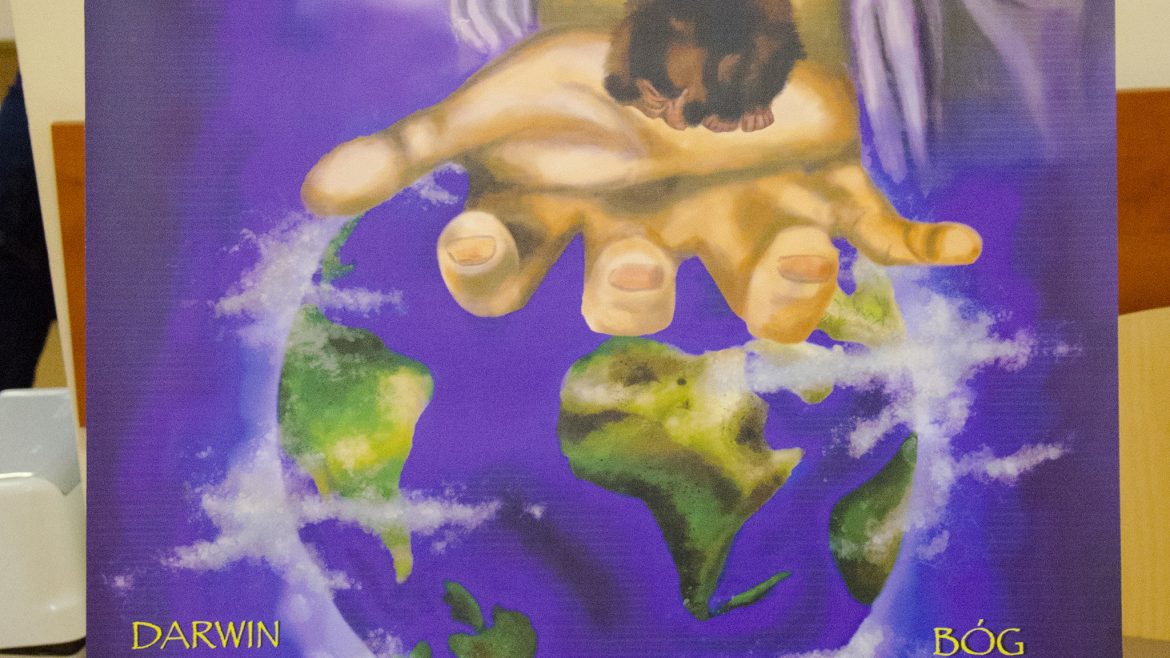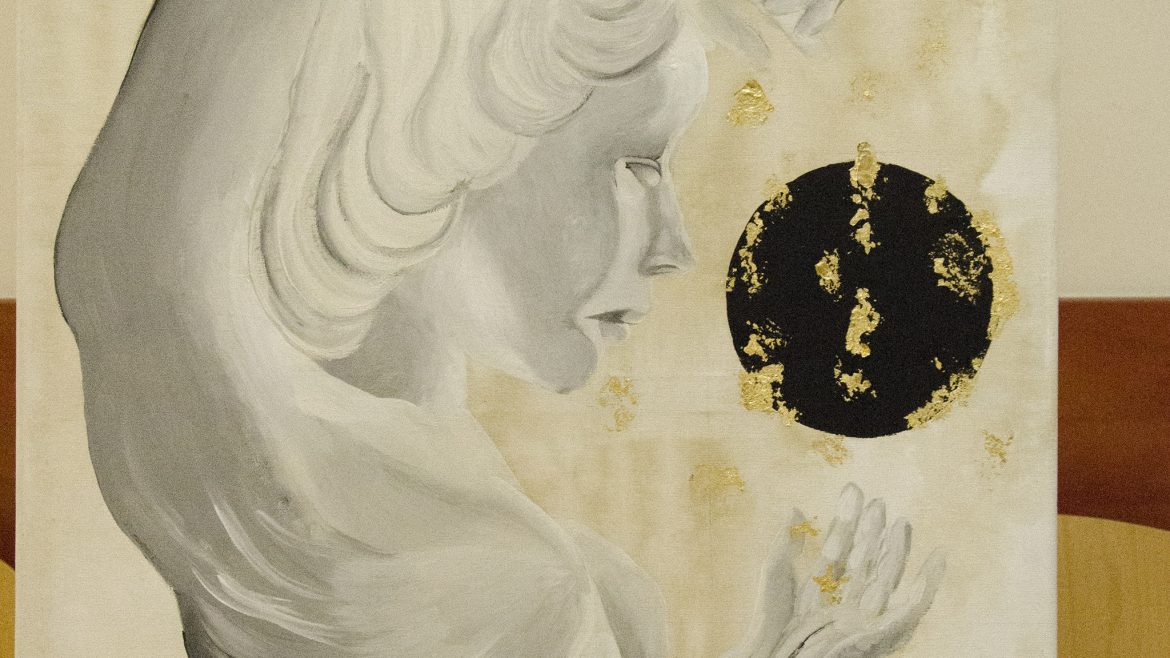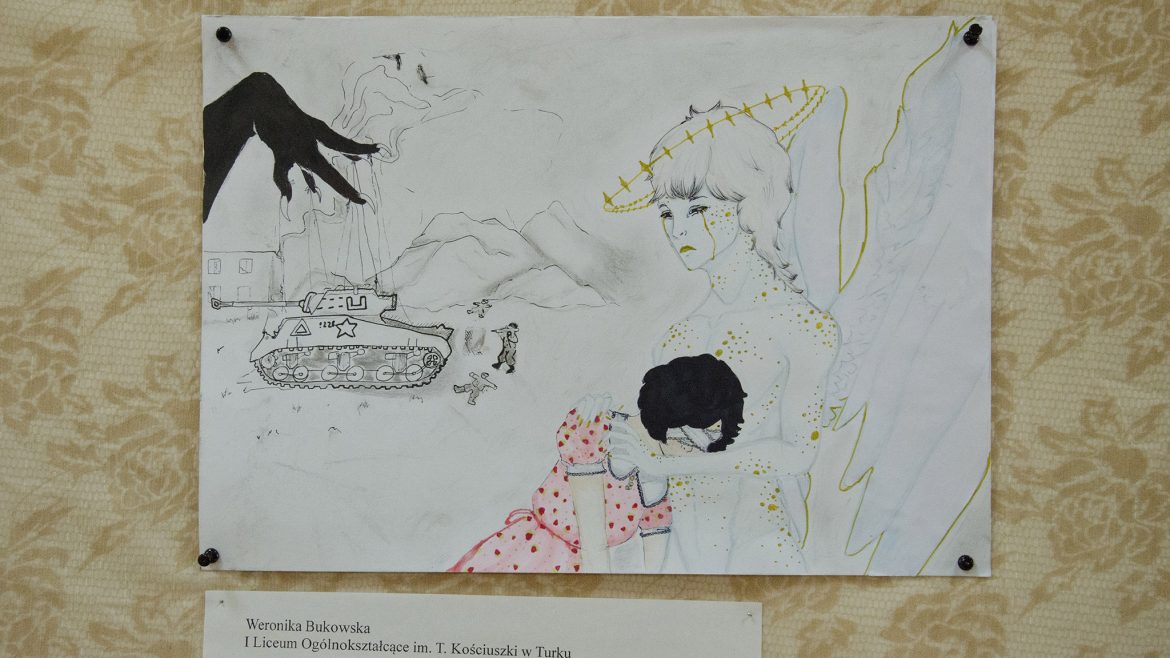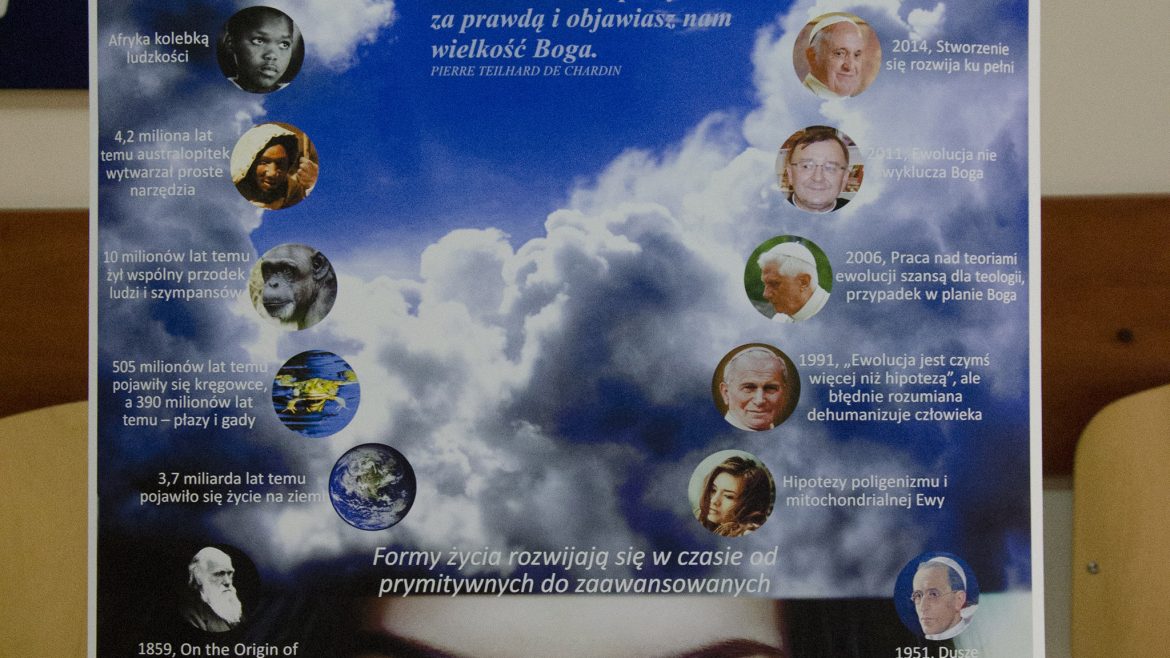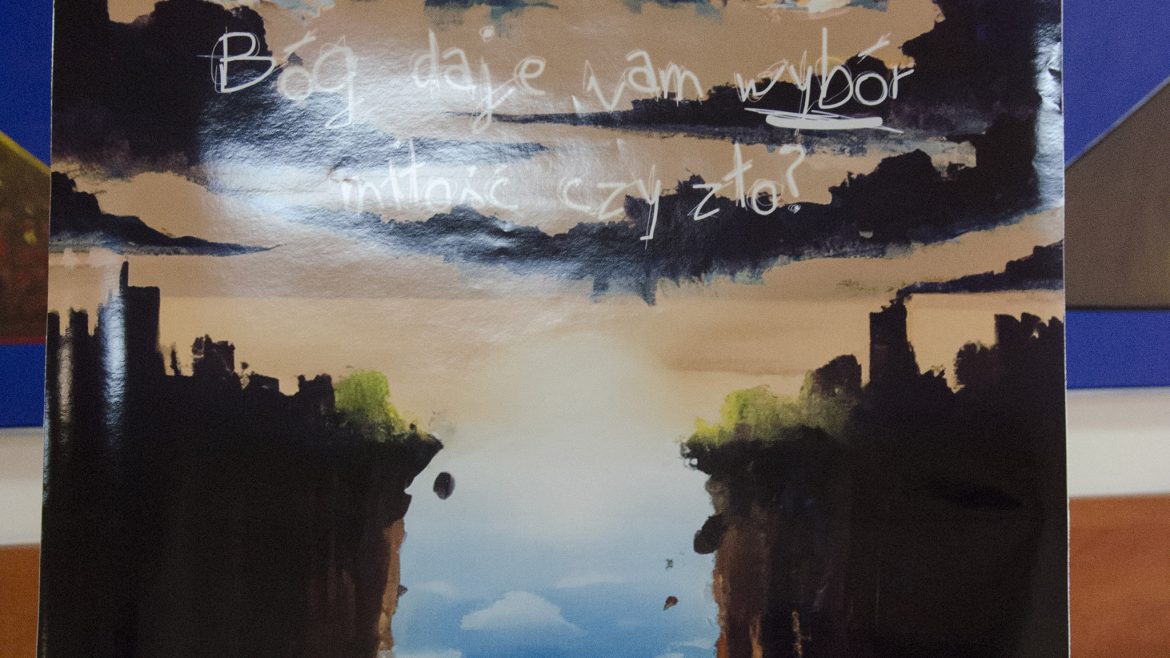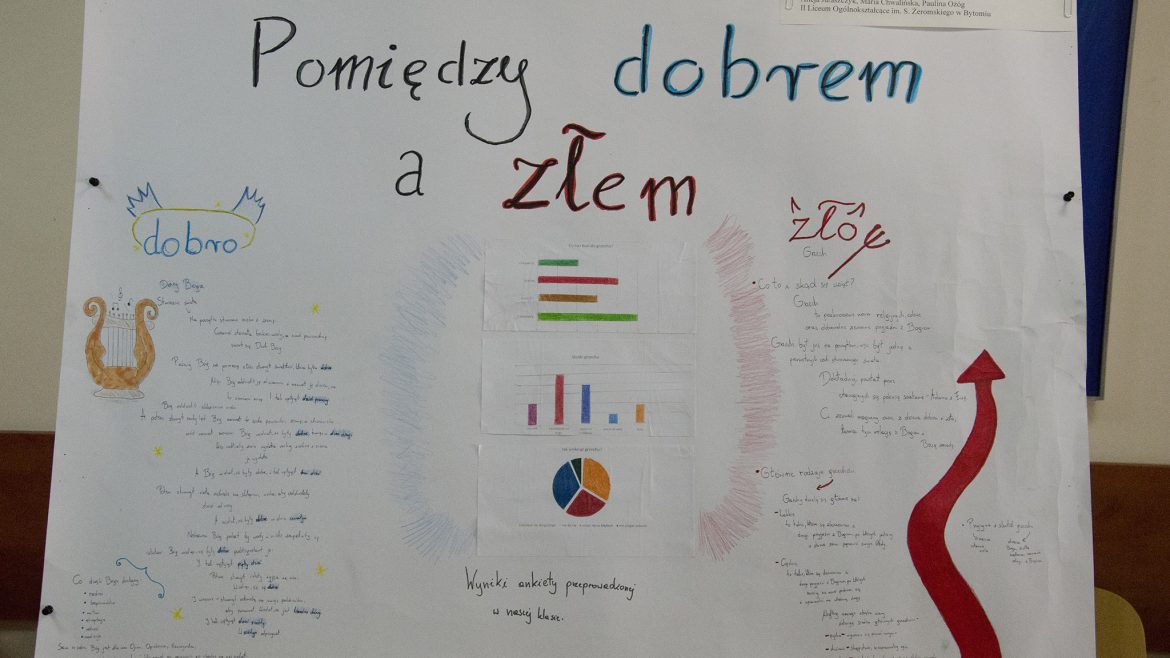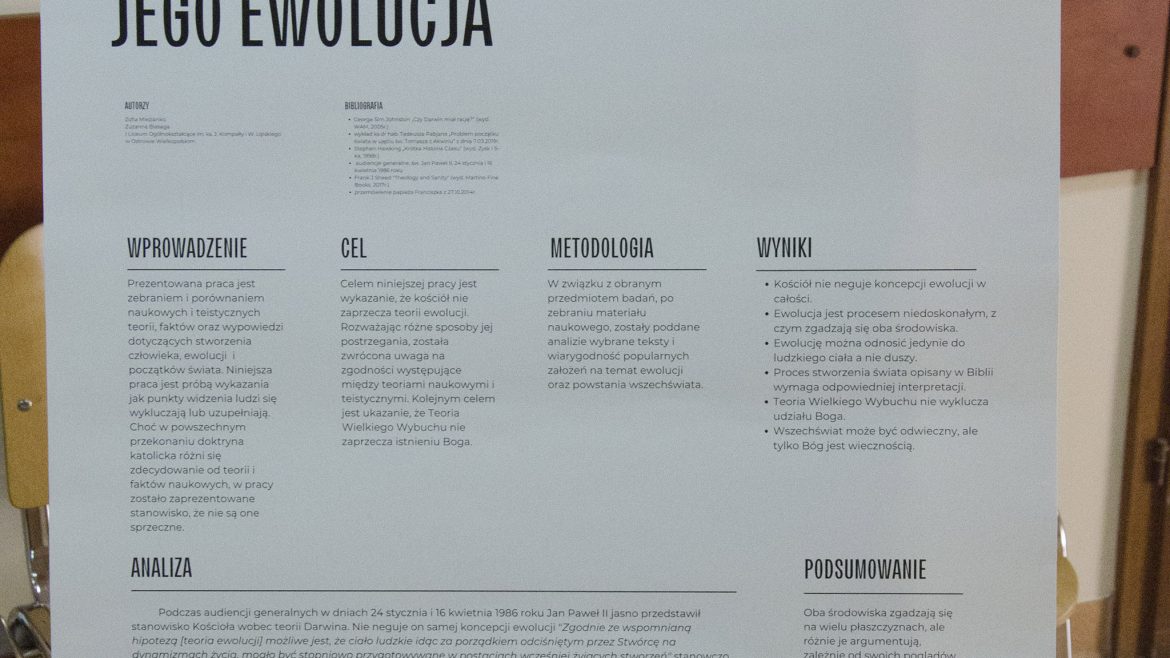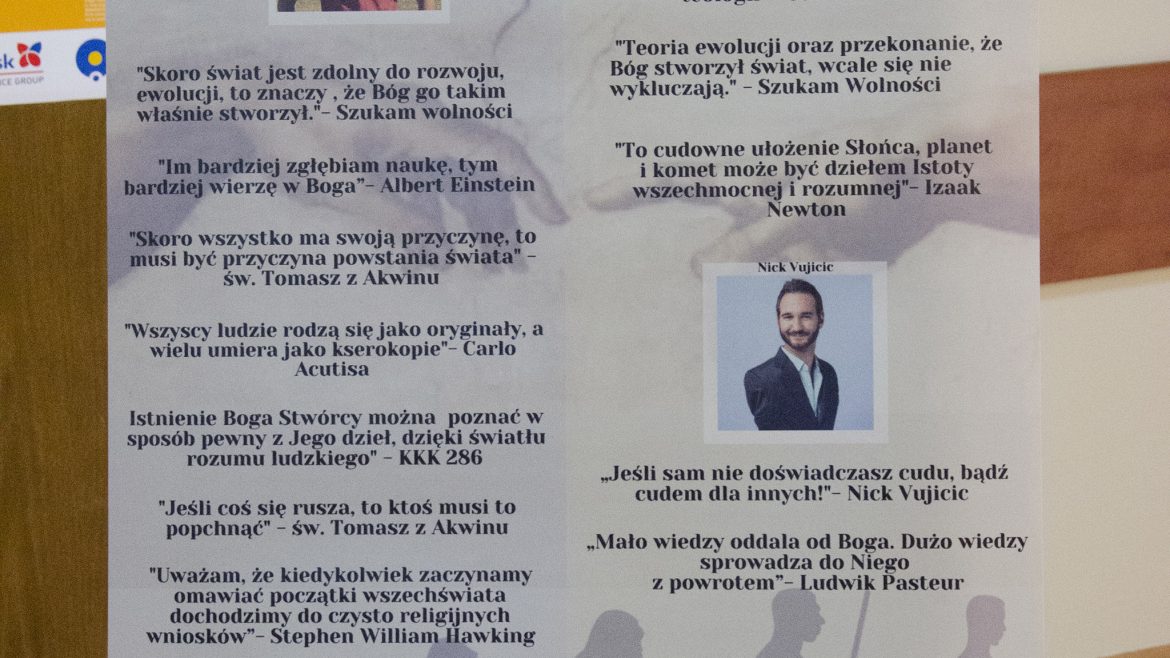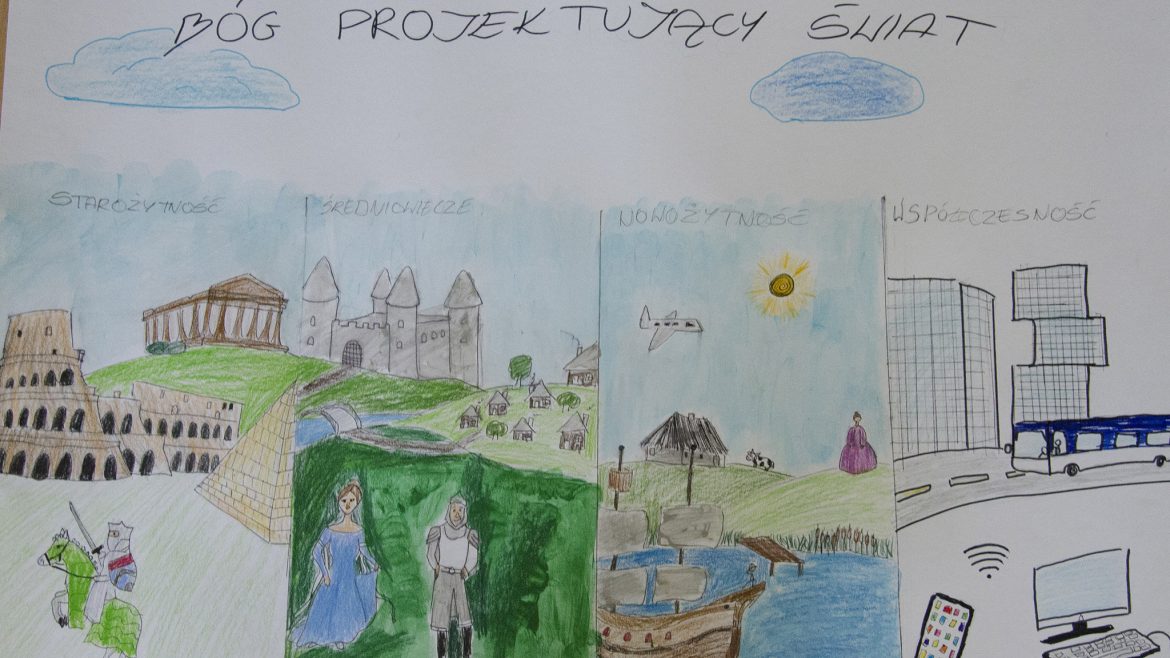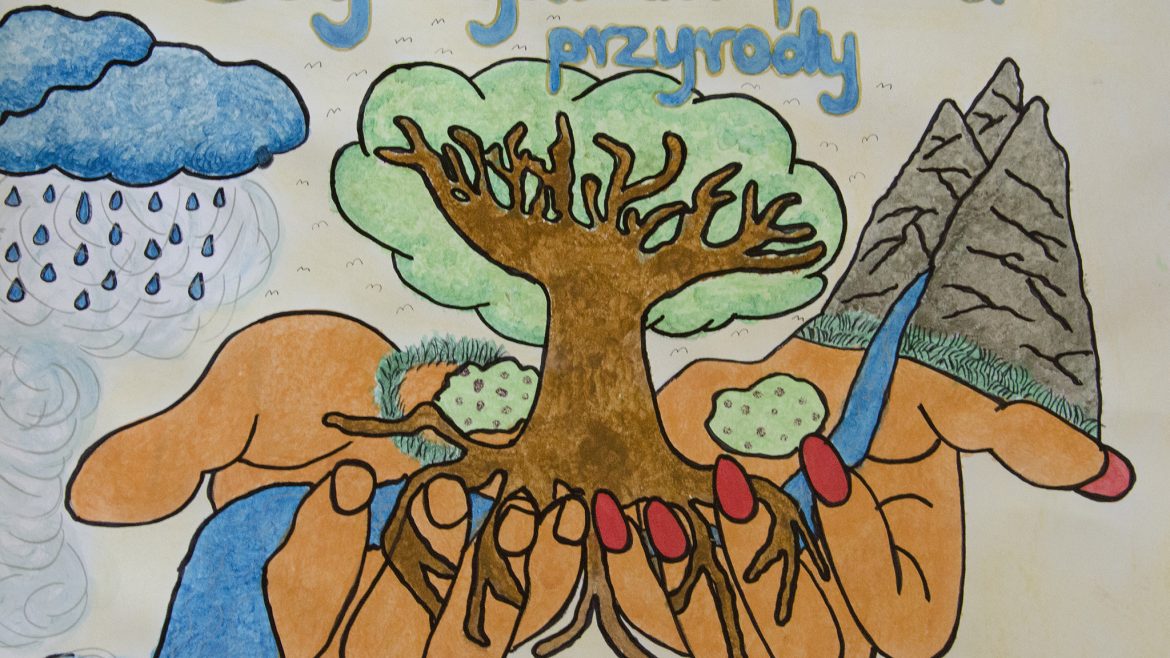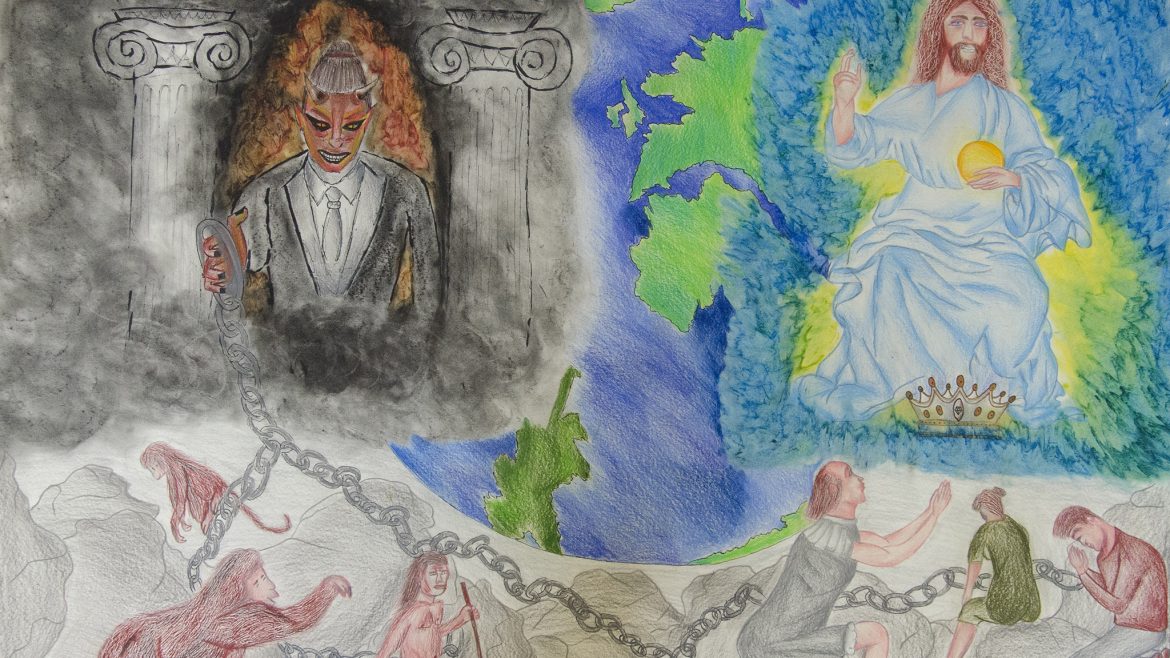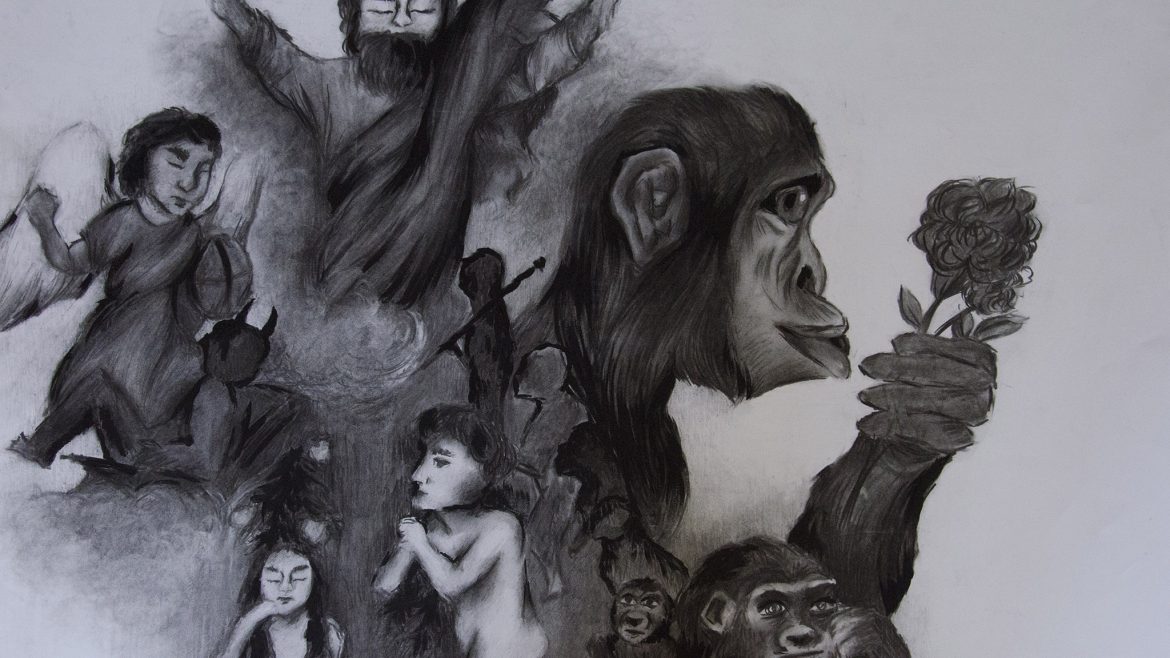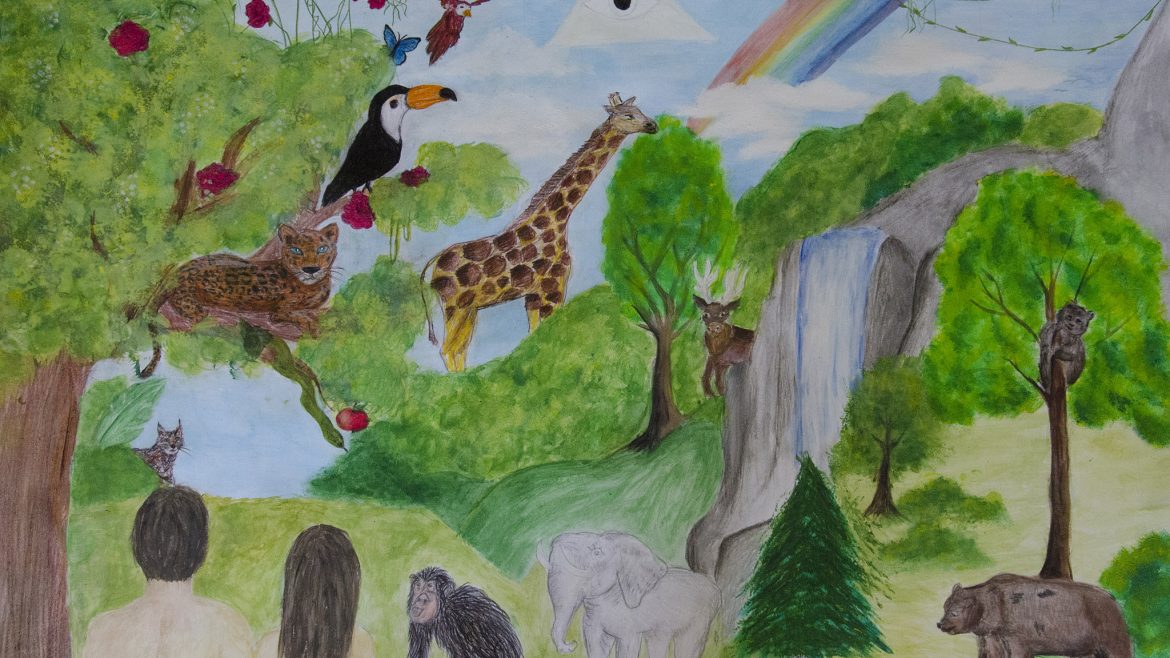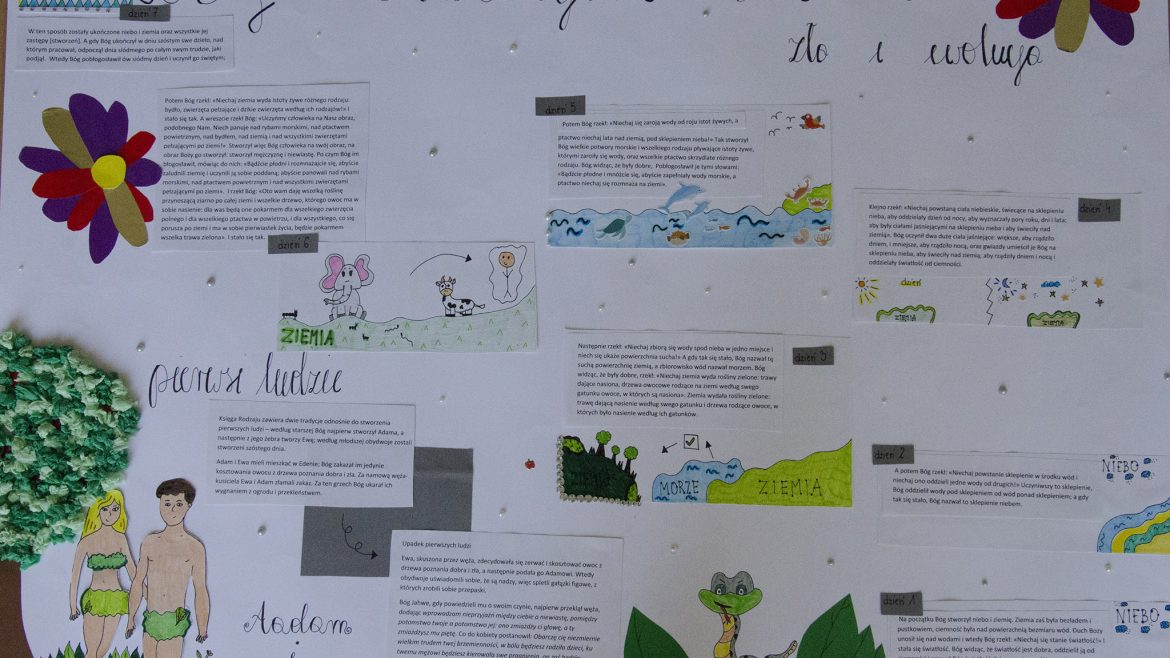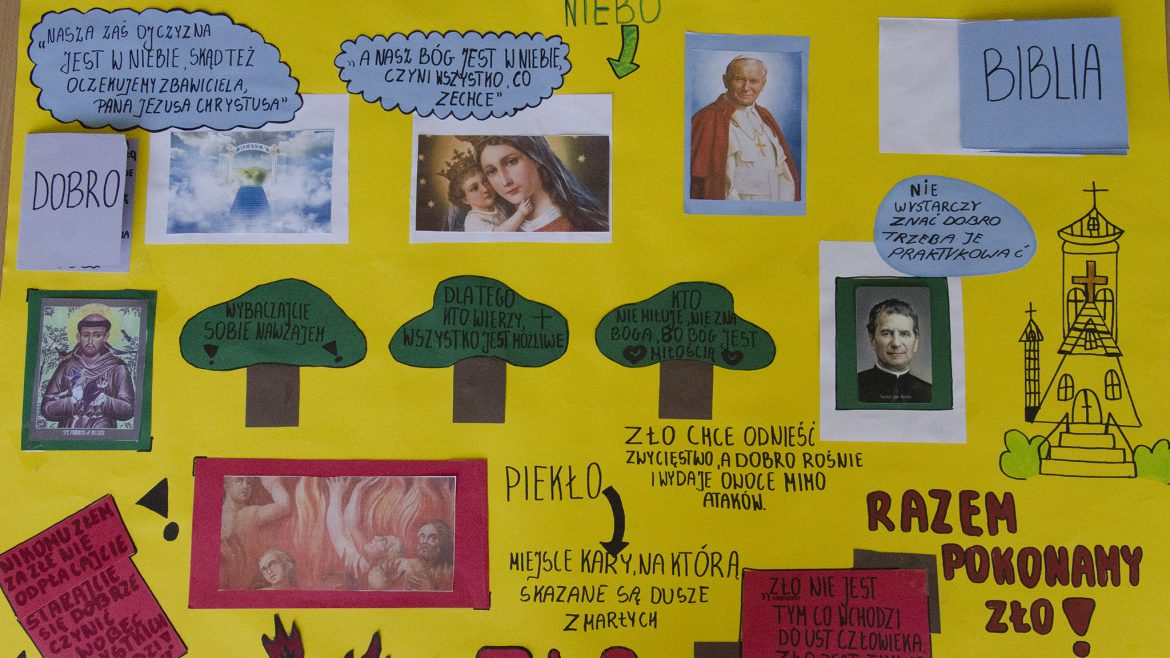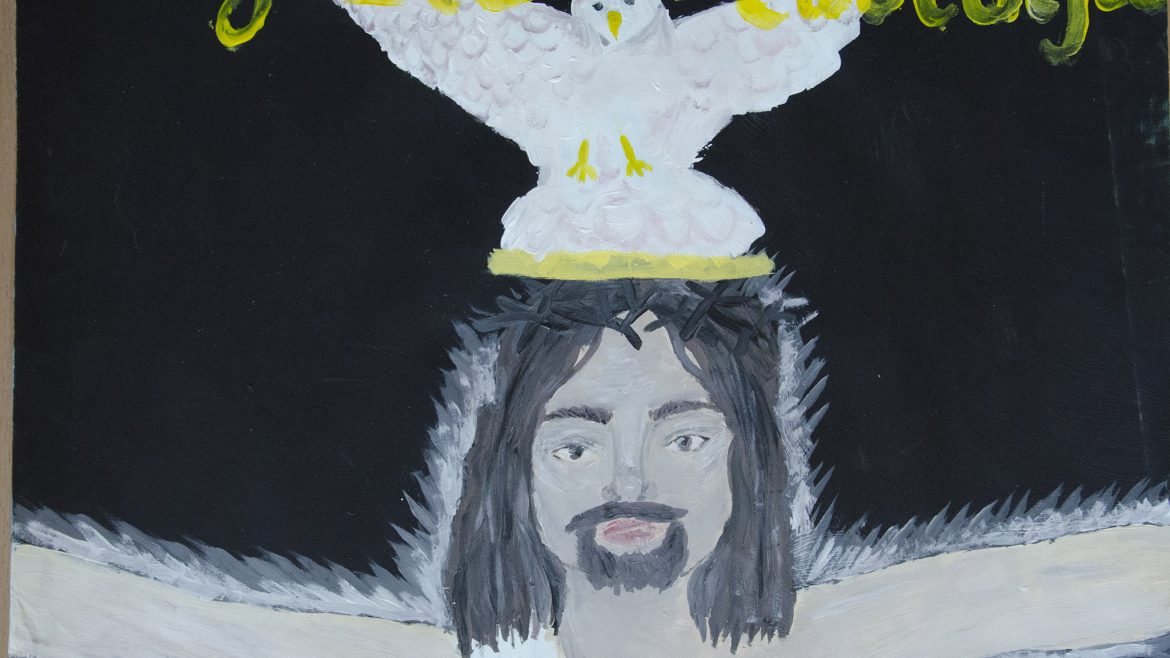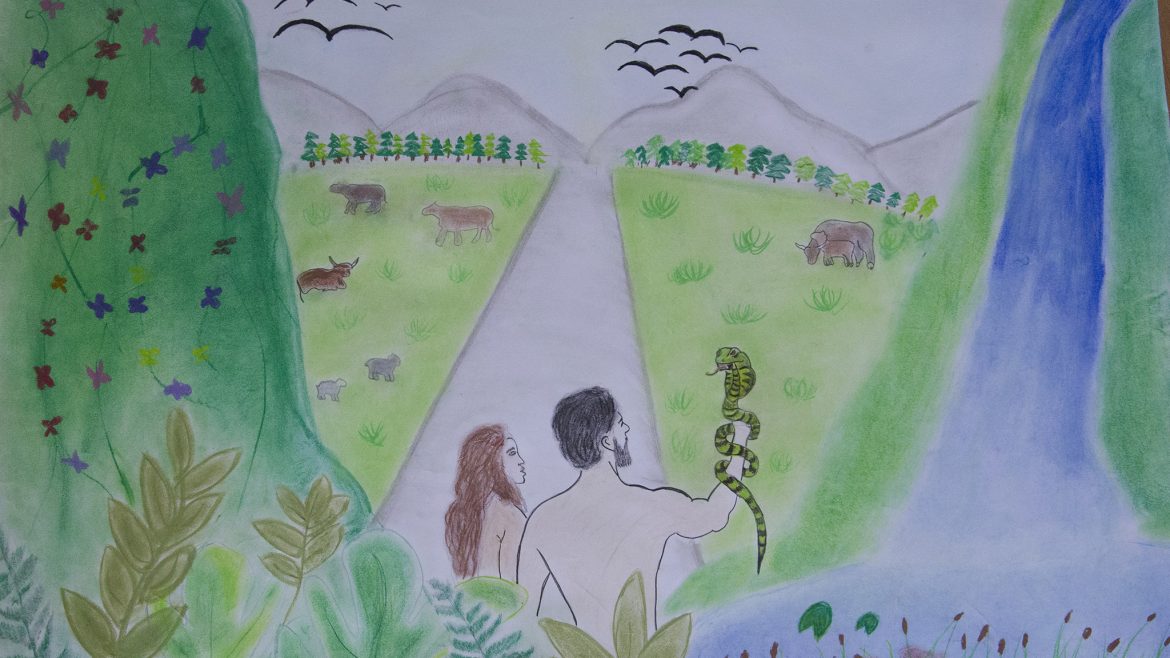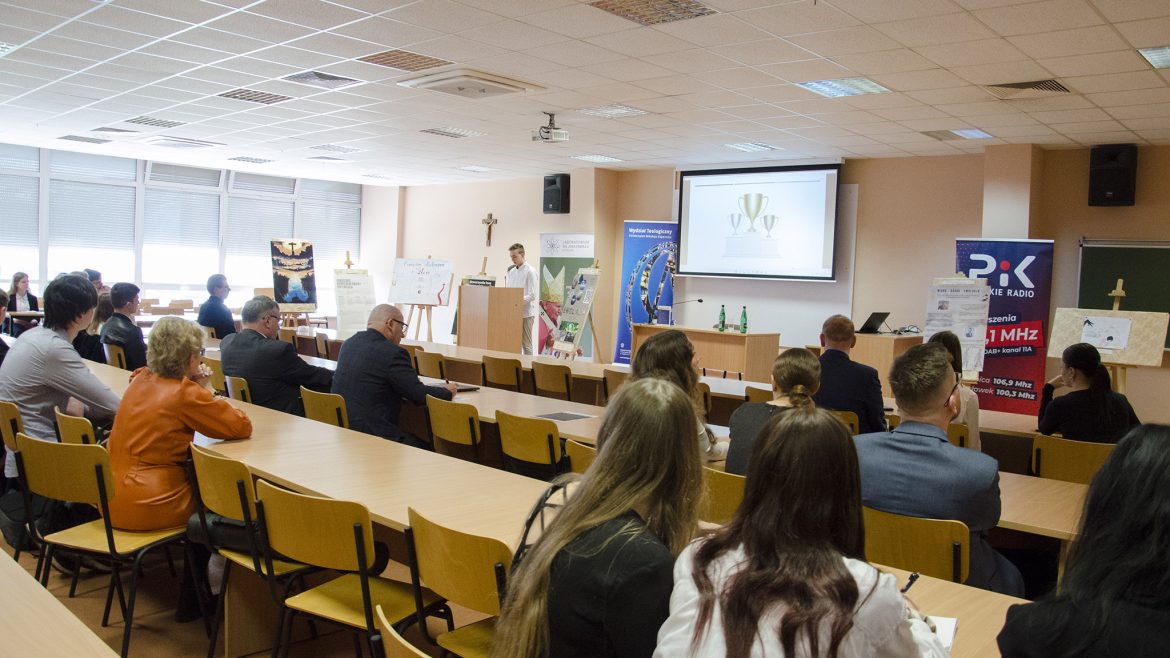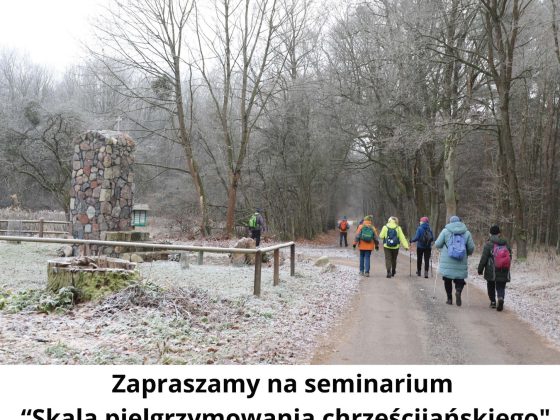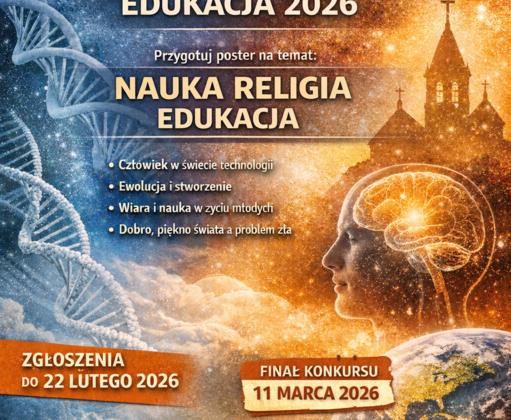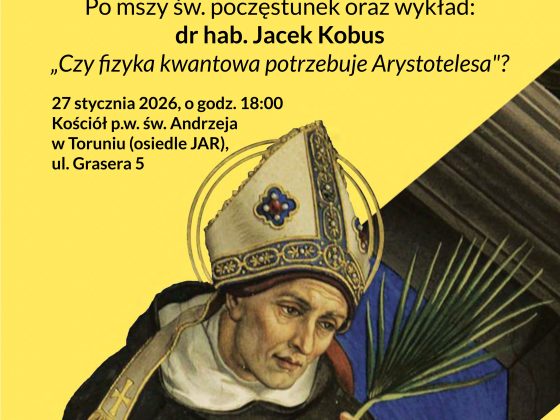The competition was organized as part of the project The Dynamic Theodicy Model: understanding God, Evil and Evolution financed by the Templeton Foundation and implemented at the Faculty of Theology of the Nicolaus Copernicus University in Toruń.
The competition was addressed to secondary school students of all grades in Poland. Secondary school students, individually or in a team (consisting of a maximum of 3 people), prepared an original work (poster) on the topic: God, evil and evolution. The issue was presented in a general or detailed perspective, discussing selected issues, e.g., the way evolution is presented in biology and religion, evolution and creation, divine action in the world (laws of nature, miracles, purposefulness of processes), goodness and beauty of the world versus evil, etc.
48 applications were submitted from all over Poland. In total, 85 people took part in the competition. At the first stage of the competition, the submitted works were assessed by the Competition Committee, taking into account the following criteria: work performance (graphic form, aesthetics, etc.), compliance with the theme of the competition, substantive aspect (idea, content, etc.). 10 teams qualified for the final.
The finalists presented their posters, on April 14, during the international Interdisciplinary Conference “Pain and Suffering in the Evolutionary and Theological Perspective”, in front of a 3-person Committee composed of professors of the Nicolaus Copernicus University and in front of the participants of the conference. The following were criteria of evaluation: a poster, presentation of posters and an answer to one of the randomly selected questions (the questions concerned John Paul II’s speech to the Pontifical Academy of Sciences on evolution in the perspective of Christian theology).
After viewing the posters, presentations and providing answers by the Finalists, the Competition Commission awarded the following prizes:
- First prize worth 1,500 PLN: Malwina Wyrzykowska, Weronika Zaleska,
II Liceum Ogólnokształcące im. Mieszka I w Szczecinie,
supervisor: ks. Maciej Wagner - Second prize worth 900 PLN: Maciej Czaicki,
Technikum nr 4 w Tarnowskich Górach,
supervisor: Irena Cebula - Third prize worth 600 PLN: Zuzanna Biesaga, Zofia Miezianko,
I Liceum Ogólnokształcące im. ks. J. Kompałły i W. Lipskiego w Ostrowie Wielkopolskim,
supervisor: ks. Fabian Domagalski
Three distinctions worth PLN 300:
- 1st distinction, Martyna Lewandowska, Maja Woszczyna,
II Liceum Ogólnokształcące im. Królowej Jadwigi w Toruniu,
supervisor: Ksenia Bogucka-Komorek, - 2nd distinction: Wiktoria Dembińska,
I Liceum Ogólnokształcące im. T. Kościuszki w Turku,
supervisor: Katarzyna Rajczyk, - 3rd distinction: Julia Antczak, Patrycja Karpińska, Oliwier Makowiecki,
Liceum Ogólnokształcące im. Fryderyka Chopina w Sochaczewie,
supervisor: Justyna Kwiatkowska-Kornatko.
Other participants of the Final:
Weronika Bukowska (I Liceum Ogólnokształcące im. T. Kościuszki w Turku, supervisor: Renata Bąk), Wojciech Ćwikło, Patrycja Dziurkowska, Patrycja Wolska (V Liceum Ogólnokształcące im. Marii Skłodowskiej-Curie w Lublinie, supervisors: Józef Nowak, Renata Grzegorczyk), Kacper Gajewski, Michał Molenda, Mateusz Konieczny (Zespół Szkół Ponadpodstawowych im. Józefa Marcińca w Koźminie Wielkopolskim, supervisor: ks. Mateusz Setecki).
Organizers of the competition:
- Nicolaus Copernicus University in Toruń (Faculty of Theology),
- John Templeton Foundation,
- Pro Futuro Theologiae Foundation.
Honorary patronages:
- Marshal of Kuyavian-Pomoranian Voivodeship,
- President of Toruń,
- Kuyavian-Pomoranian Education Superintendent,
- Radio of Kuyavia and Pomerania.
